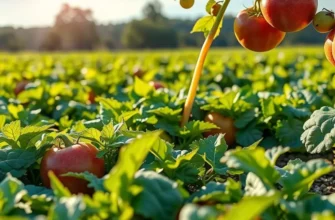Bulk food shopping can be a game changer for your pantry and wallet. By purchasing larger quantities of items, you can save money and reduce packaging waste. However, it’s crucial to approach bulk shopping strategically. This guide will provide practical tips on safe food storage, waste reduction, and streamlined food management at home, ensuring your bulk purchases enhance your lifestyle rather than overwhelm it.
Smart Shopping: Choosing the Right Bulk Items

Buying in bulk can transform your shopping habits, making them more economical and sustainable. However, selecting the right items to purchase in bulk is crucial to avoid unnecessary waste. Start by considering the foods you regularly consume and the shelf life of these items.
Focus on Pantry Staples
Staples such as rice, pasta, and dried beans are excellent for bulk buying. These items have long shelf lives and are versatile in various recipes. When stored properly, they can last months, reducing the frequency of shopping trips and minimizing packaging waste. For optimal storage methods, consider exploring eco-smart kitchen storage solutions.
Avoid Perishables Unless Frequently Used
While the allure of discounted fresh produce is tempting, buying perishables in bulk can lead to significant waste if not utilized swiftly. However, if your diet includes a high volume of a specific fruit or vegetable, it might be worth the risk. In such cases, thoroughly plan your meals to ensure these items are consumed before they spoil.
Consider Frozen and Dried Goods
Frozen fruits and vegetables can be an ideal choice for bulk purchases since they are as nutritious as fresh varieties but with extended shelf lives. Dried goods like herbs, spices, and powdered milk also work well, given their stability. These items are less likely to go bad, making them wise investments.
Evaluate Storage Space
Before buying, assess your storage capacity. Ensure you have adequate bins and space to keep items fresh. Utilize airtight containers for grains and other dry goods to keep pests at bay. Being mindful of your storage limitations helps prevent overcrowding, which can lead to additional food waste.
Consider Your Dietary Needs
Support your unique dietary requirements by bulk-buying specific items that align with your nutritional goals. Whether you’re transitioning to a plant-based diet or exploring alternative eating habits, purchasing relevant ingredients in bulk may afford you additional savings. To simplify a plant-based transition, check out easy plant-based eating tips.
Plan Ahead for Special Occasions
Big gatherings or special diets may necessitate extra quantities of certain items. Anticipating these needs allows for mindful bulk purchases while averting last-minute spikes in costs. Use calendars to track upcoming events and adjust your shopping list accordingly.
Ultimately, a keen eye for what suits your household’s consumption patterns will guide your bulk shopping strategy. By choosing wisely and storing efficiently, you can ensure that your bulk purchases are both economically and environmentally sound.
Storing Bulk Items: Safety and Efficiency

Proper storage of bulk items is essential for maintaining their quality and ensuring safety. Begin by assessing your storage space to make the most out of your bulk purchases. Shelving units, airtight containers, and proper labeling can transform a cluttered pantry into an efficient storage haven.
Understanding Bulk Storage Needs
Evaluate the specific needs of each type of bulk item. Grains and cereals, for example, require airtight containers to keep pests at bay and to retain freshness. Using glass jars or BPA-free plastic containers is a smart choice. For items like flour or rice, consider using containers with tight-sealing lids to prevent moisture ingress.
Temperature and Light Considerations
Control of temperature and exposure to light is critical. Store bulk foods in a cool, dark place to prolong their shelf life. High temperatures can worsen the quality of oils and nuts, whereas excessive light may degrade nutrients in grains and beans. Maintain a storage temperature of 50-70°F (10-21°C) to optimize food quality. If your pantry gets warmer, consider investing in storage solutions that maintain stable conditions.
Humidity Management
Balancing humidity is also key. Too much moisture can lead to mold and spoilage. Use desiccants or silica gel packets in containers to absorb excess humidity, especially in the case of powders and baked goods. Ensure a relative humidity of 15% or less for dried foods to prevent spoilage.
Storing Perishables and Semi-Perishables
Certain bulk items like cheeses, meats, and certain vegetables will require refrigerated storage. Use vacuum-sealed bags for meats and cheeses to extend their shelf life. Vegetables, like potatoes and onions, should be stored in a dry and well-ventilated area, separate from each other to avoid spoilage due to emitted gasses.
Labeling and Rotation
Efficient rotation and labeling are integral to bulk food storage. Always label your containers with purchase dates and “use by” dates. Implement a first-in, first-out (FIFO) system, using older items first, to minimize waste. Regularly check expiration dates and adjust your storage system as necessary.
Safety Precautions
Avoid storing bulk items directly on the ground to protect them from pests and floods. Using storage racks and pallets creates a barrier against insects and moisture. For further guidance on reducing waste in your kitchen, explore low-waste cooking strategies.
By adhering to these storage principles, you can significantly increase the longevity and quality of your bulk purchases. Incorporate these strategies to ensure your investment in bulk shopping provides the maximum possible benefit. Adapting your storage practices as needed will help minimize waste and maintain food safety, aligning perfectly with sustainable and efficient bulk shopping habits.
Final words
Bulk food shopping is a practical choice that boosts savings while promoting sustainable habits. By selecting the right items and storing them properly, you can minimize waste and enjoy a more organized kitchen. Always prioritize quality over quantity, and make sure to rotate your stock to keep high turnover on perishable items. Embracing these practices enables you to take full advantage of bulk buys, ensuring your pantry is both well-stocked and manageable.







